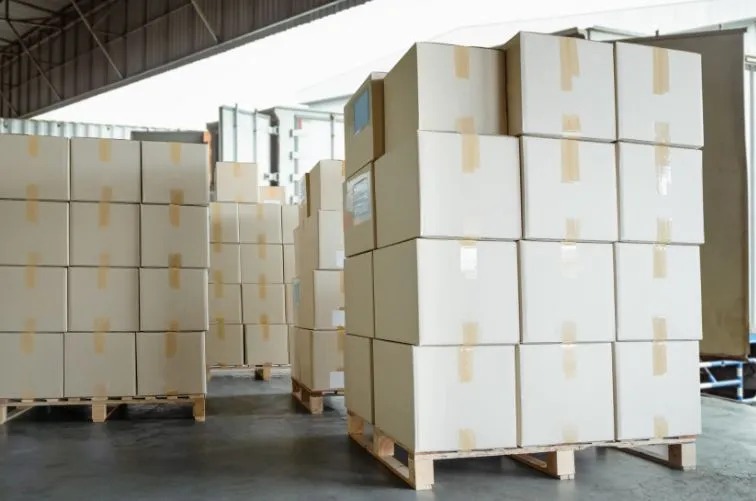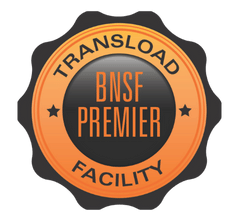Cross-docking and transloading are two different logistics strategies which play an important role in modern supply chain management. Each offers unique benefits and is suited to different transportation and distribution needs.
Below we’ll explore the meaning, processes, and advantages of cross-docking and transloading, helping you determine which logistics solution best supports your operations. Additionally, we’ll highlight how Atlas Columbia Warehouse (ACW) provides expert services for paper manufacturers in the Pacific Northwest.
Cross-Docking: Meaning and Key Benefits
Cross-docking is a logistics strategy where inbound shipments are directly transferred to outbound trucks, bypassing long-term storage. This process minimizes storage time while enhancing supply chain efficiency. Goods arriving at a cross-docking facility are unloaded, sorted, and quickly loaded onto an outbound vehicle for final delivery.
Key Benefits of Cross-Docking:
- Reduced Storage Time: Eliminates the need for long-term storage, streamlining the supply chain and enabling faster deliveries.
- Improved Supply Chain Efficiency: Consolidates goods from multiple inbound trucks, enabling quicker distribution with minimal handling.
- Cost Savings: Reduces reliance on storage facilities, lowering warehousing and inventory costs.
- Faster Turnaround: Ensures perishable or high-demand products reach their destinations promptly, ideal for retail chains and businesses with frequent deliveries.
Transloading: Meaning and Key Benefits
Transloading refers to transferring goods from one mode of transportation to another during the shipping process. It is commonly used for international shipments where goods must switch from ocean freight to rail or truck transport. At a transloading facility, goods are unloaded from shipping containers and reloaded onto a new mode of transport for onward distribution.
Key Benefits of Transloading:
- Flexibility in Transportation Modes: Enables businesses to choose the most cost-effective and efficient modes of transportation for their needs.
- Improved Supply Chain Strategy: Allows optimization of routes and minimizes delays by leveraging various transportation modes.
- Space Optimization: Consolidates goods into fuller loads, reducing transport costs and ensuring efficient use of space.
- Access to Intermodal Transportation: Combines rail, truck, and sea transport to enhance reach and efficiency in the transportation process.
Cross-Docking vs Transloading: Which Logistics Strategy is Most Advantageous For Your Products?
The decision between cross-docking and transloading depends on your supply chain objectives and the nature of your shipments.
Cross-Docking Is Advantageous If:
- Your business requires rapid distribution of goods with minimal temporary storage.
- Products have a short shelf life or high demand, requiring fast delivery.
- You want to reduce costs by bypassing storage facilities and focusing on direct transfers to outbound transportation.
Transloading Is Advantageous If:
- You manage international shipments that involve multiple modes of transportation.
- Your products require consolidation or deconsolidation to optimize shipping costs.
- Flexibility in routing and transport modes is essential for your business operations.
Cross-Docking & Transloading for Paper Manufacturers: Atlas Columbia Warehouse
Atlas Columbia Warehouse (ACW), located in Tacoma, Washington, USA provides cross-docking services and transloading services for the paper industry. For paper manufacturers, choosing both the right logistics strategy and warehouse facility is important in maintaining product quality and meeting demand.
ACW’s warehousing facility ensures efficient handling of bulk paper shipments through cross-docking services. By transferring products directly from inbound trucks to outbound delivery vehicles, ACW reduces storage time and ensures paper products reach their destinations in pristine condition.
ACW also handles the transloading process for paper products requiring multiple transportation modes. Whether transferring rolls of paper from rail to truck or consolidating shipments for international distribution, ACW’s services ensure seamless operations and optimal efficiency. With access to rail yards, highways, and the Port of Tacoma, ACW’s location supports both regional and long-distance shipments. Intermodal transport which reduces transport costs while maintaining the integrity of delicate paper products is also available at Atlas Columbia Warehouse.
Atlas Columbia Warehouse, part of Stryder Group, in Tacoma, WA, can improve your supply chain with cross-docking and transloading services for paper manufacturers. Whether you need rapid distribution or intermodal shipment handling, ACW delivers efficiency and reliability for paper products in North America.
Contact us at 253-272-9320 for services or book a visit at 922 E 11th St, Ste 300, Tacoma, WA 98421, United States to strengthen your paper product supply chain today.






Good https://shorturl.fm/j3kEj
https://shorturl.fm/j3kEj
https://shorturl.fm/6539m
https://shorturl.fm/TbTre
https://shorturl.fm/N6nl1
https://shorturl.fm/XIZGD
https://shorturl.fm/68Y8V
https://shorturl.fm/YvSxU
https://shorturl.fm/XIZGD
https://shorturl.fm/bODKa
https://shorturl.fm/A5ni8
https://shorturl.fm/N6nl1
https://shorturl.fm/XIZGD
https://shorturl.fm/oYjg5
https://shorturl.fm/A5ni8
https://shorturl.fm/YvSxU
https://shorturl.fm/fSv4z
https://shorturl.fm/xlGWd
https://shorturl.fm/PFOiP
https://shorturl.fm/LdPUr
https://shorturl.fm/YZRz9
https://shorturl.fm/0EtO1
https://shorturl.fm/0oNbA
https://shorturl.fm/hQjgP
https://shorturl.fm/f4TEQ